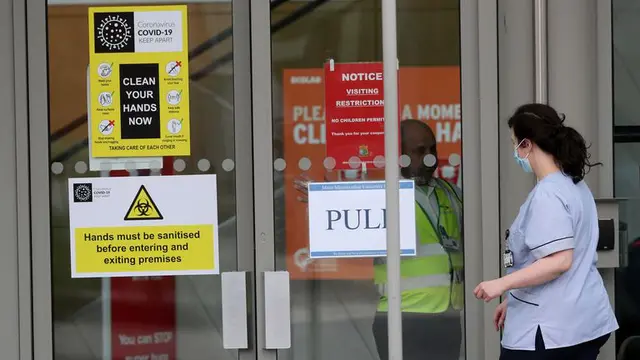Ireland's health service has closed down its computer systems after what it described as a "significant ransomware attack".
The Republic's Health Service Executive (HSE) said it had shut down its entire IT network as a "precaution".
It said
COVID-19
vaccination appointments were not affected by the cyberattack and were going ahead as planned.
"There is a significant ransomware attack on the HSE IT systems," the HSE said on Twitter.
"We have taken the precaution of shutting down all our IT systems in order to protect them from this attack and to allow us fully assess the situation with our own security partners."
It added: "We apologise for inconvenience caused to patients and to the public and will give further information as it becomes available.
"Vaccinations not affected are going ahead as planned."
The Rotunda maternity hospital in Dublin has been forced to cancel many routine appointments due to the IT issues as a result of what it said was a "critical emergency".
"Due to a serious IT issue all outpatient visits are cancelled today - unless you are at 36 weeks pregnant or later," the hospital tweeted.
It said all gynaecological clinics had been cancelled on Friday.
In a tweet, the hospital added: "If you have any urgent concerns please attend as normal."
The country's National Ambulance Service said it was unaffected with no impact on emergency calls.
HSE chief executive Paul Reid told national broadcaster RTE: "It's a very sophisticated attack, not just the standard
attack.
"It is impacting all of our national and local systems that would be involved in all of our core services.
"The vaccination programme continues thankfully, it's a separate system."
Mr Reid said the attack was largely affecting information stored on central servers and not hospital equipment.
Ransomware attacks typically involve the infection of computers with malicious software, often downloaded by clicking
on apparently innocuous links in emails or other website pop-ups.
Users are left locked out of their systems, with the demand of a ransom to be paid to restore computer functions.
They differ from a data breach or other types of hacking, which may steal large batches of customer data or other information from companies or individuals.
 简体中文
简体中文

